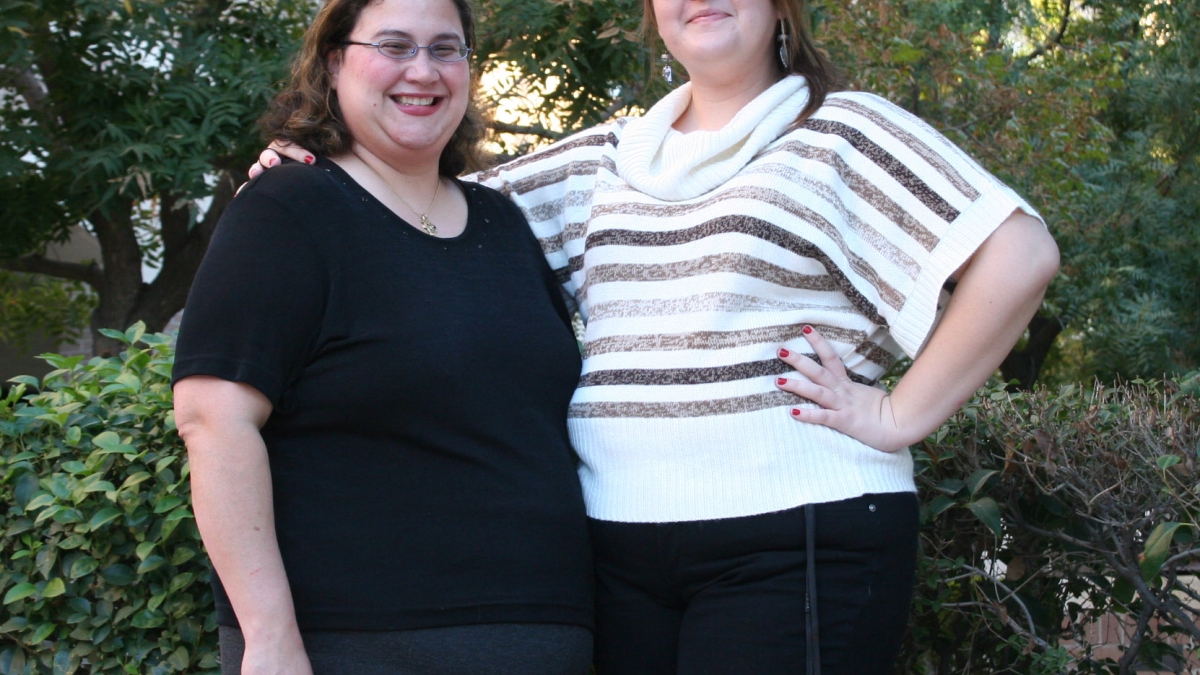Program supports undergrads in research projects

It has been two years since ASU’s New College of Interdisciplinary Arts and Sciences implemented its NCUIRE (New College Undergraduate Inquiry and Research Experiences) program that pays students stipends to work in collaboration with professors on research projects. From both a numbers standpoint and in terms of helping students advance toward their educational and career goals, the program has been an unqualified success.
“It’s gratifying to see the results we were hoping for in establishing NCUIRE are coming to pass,” said Todd Sandrin, associate vice provost at ASU’s West campus and NCUIRE’s director. “By working side-by-side with knowledgeable faculty, students are learning first-hand how research works, and that experience is opening doors for them when they graduate.”
Since its inception in January 2011, NCUIRE has supported 108 undergraduate student-faculty research projects. Student NCUIRE awardees have served as collaborators or co-authors on 35 presentations at conferences; they also have been collaborators or co-authors on 23 peer-reviewed publications.
Students from all three of New College’s schools – the School of Humanities, Arts and Cultural Studies (SHArCS); Mathematical and Natural Sciences (MNS); and Social and Behavioral Sciences (SBS) – participate in NCUIRE.
One SHArCS student who intends for her NCUIRE project to result in publication of an article in an academic journal is Sasha Billbe. She spent the summer of 2012 working with Bertha Manninen, associate professor of philosophy, on a project entitled “Moral Educators of Today’s Youth: An Examination of Media through the Lens of Virtue Ethics.”
Billbe focused on the marketing of the “Twilight” series of novels to young people. This endeavor complements her senior thesis through Barrett, The Honors College.
Billbe explains that while the “Twilight” novels are written by a woman and about a woman, they portray the heroine Bella as behaving in a subservient and passive way toward men. “In my Barrett thesis I am exploring why that is so significant from a feminist point of view,” she said. “My NCUIRE project is equally a feminist endeavor, except that I focus on the marketing of ‘Twilight’ to the younger generation. This has included extensive research into how the media has an impact on morality and just how literature plays a role as a moral educator, which has greater implications for youth because they are less guarded than adults against such falsely presented ideals.”
Billbe’s thesis and NCUIRE project build on a previous paper she wrote arguing that hip hop music and “Twilight” present the same ideals about women. “I am absolutely intrigued by how the presentation of an idea can completely alter its reception,” Billbe said. “Hip hop is often condemned, especially by middle-class white families, while ‘Twilight’ is embraced as novels which mothers and daughters should be reading together and bonding over. Admittedly, one plasters half-naked women on album covers whereas the other decorates its bindings with allusions to Eve and her forbidden apple – yet the words themselves represent the exact same ideals.
“My findings through NCUIRE have reinforced this idea, showing that oftentimes readers aren’t completely unaware of the gender inequality that runs rampant throughout the pages of the ‘Twilight’ novels, but rather they’re willing to condone it because they consider the books to be ‘simply for idle pleasure.’ This, to me, makes the potential for damage that much greater, because we are aware but utterly indifferent,” Billbe said.
As she applies graduate schools, Billbe has an ally in Manninen, who has had the opportunity to help her develop her critical thinking skills and capacity to conduct research in the humanities.
“The NCUIRE program, from my experience, has been a great success,” Manninen said. “Students and professors are immersed in a collegial relationship where they begin to view each other as colleagues. In my experience with Sasha, she went from being a student, to a co-worker, and a friend I hope to see grow and develop over the years. While participation in the program teaches students some essential components of conducting academic research, it also fosters a genuine mentoring relationship that has the promise of enduring after the student has graduated from ASU.”
“The fact that we pay students a stipend to participate in NCUIRE is a critical part of the program’s success,” Sandrin said. “This frees many students from having to seek other employment that does not help advance them toward their goals. Sasha’s work with Dr. Manninen should strengthen her chances of gaining admission to graduate school.”
“To say that NCUIRE and Barrett have helped me prepare for graduate school is a vast understatement,” said Billbe. “Most of the grad programs I’m pursuing are joint programs in both philosophy and literature, or they are connected to both fields in some manner. I’ve studied both of these topics at ASU and I really don't want to leave either of them behind. The program I am currently the most interested in is located at Boston University and is a dual degree combining a Ph.D. in philosophy with an M.A. in classical studies.”
Providing students with faculty mentorship and hands-on research experience already has been a successful formula for New College students seeking admission to graduate programs. Recent bachelor’s degree recipients Jennifer Ortiz and Meghan Still from MNS and Lindsay Perez from SBS are now in doctoral programs at the University of Washington, University of Texas at Austin, and University of Nevada, Reno respectively. Ortiz and Still were awarded prestigious National Science Foundation Graduate Research Fellowships that provide support including a $30,000 annual stipend.
“We are confident that there will be many more success stories in the years to come for students who participate in NCUIRE,” Sandrin said. “It’s also important to note that these impressive outcomes wouldn’t be possible without the efforts of dedicated faculty members who devote so much of their time and energy to working with our undergraduate students.”